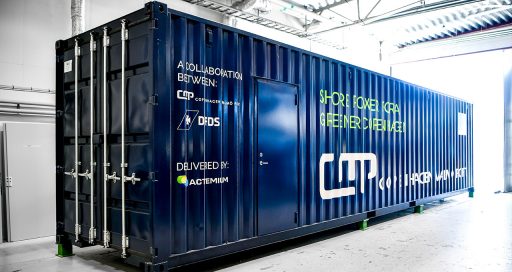Quick Scan, a preliminary audit that paves the way for effective EPCs
Reading time: 3 min
To assess whether to enter into an energy performance contract in industry, it is advisable to conduct an energy audit. Actemium’s solution evaluates potential savings within 24 hours.![]()
A legal tool originally designed to help local authorities bring their energy use under control, energy performance contracts (EPCs) are now being adopted, albeit cautiously, in the industrial and service sectors. While performance guarantees for lighting upgrade projects are well-defined, since the savings achieved by installing LED lamps can be quantified and lighting requirements are well known, the same cannot be said for factories dealing with numerous factors such as weather conditions and order book variations.
“It’s essential to prepare the ground for an energy performance contract.”
That’s why it’s “essential to prepare the ground for an EPC,” advises Thibault Lhomoy, energy efficiency engineer at Actemium, the VINCI Energies brand that delivers sustainable solutions and services to support industrial performance. While admitting that is it easier to set up EPCs in the service sector, Lhomoy, who specialises in energy saving in the industrial sector, explains that as part of a comprehensive maintenance contract awarded by ArianeGroup to Actemium, the client requested that an EPC be incorporated.
An energy audit is a prerequisite for discussing the framework and scope of an EPC. With this in mind, Actemium developed the Quick Scan formula, a preliminary audit. Conducted free of charge within a day, it generates energy consumption predictions that can measure the savings achieved from actions recommended by Actemium.
Toolkit
Potential benefits for audited businesses include energy performance certificates (“certificats d’économie d’énergie” – CEE), subsidies provided for carrying out energy efficiency works such as installing variable speed drives or insulating steam system components. The auditor comes to the company with an analysis toolkit along with models based on similar businesses whose processes Actemium knows thanks to extensive feedback from all the industrial sectors covered by the brand’s business units.
Quick Scan identifies areas in which savings might be made: “It might find that a pump that always works at 100 % could operate at 50 % or 30 %, or that a measurement of gases exiting a boiler at 190 °C shows potential for recovering heat that could be re-used in the factory,” says Lhomoy.
At the end of the day, the client is given a set of recommendations that can be refined or supplemented with a feasibility study phase if the company does not have access to all of the data on the day in question. “Around 70 % of recommendations focus on heat and 30 % on electricity,” adds Lhomoy. Suggested electricity works may involve speed variation, destratification, LED lamp replacement, and capacitor bank, monitoring system or meter installation, etc.
From a thermal perspective, works could include recovering heat from unit operations in the client process, and servicing all the utilities: boilers, cooling units and air compressors. For example, “Compressed air leaks can be corrected in factories by running an additional compressor, which could represent annual savings of up to €40,000,” says Lhomoy. The solution is quick – and the savings generated could be just as quick.
Learn more:
https://www.usinenouvelle.com/





